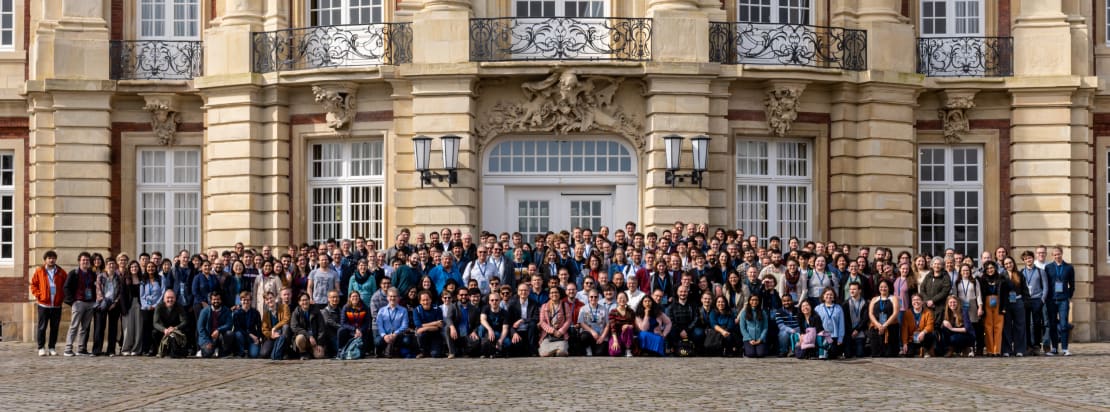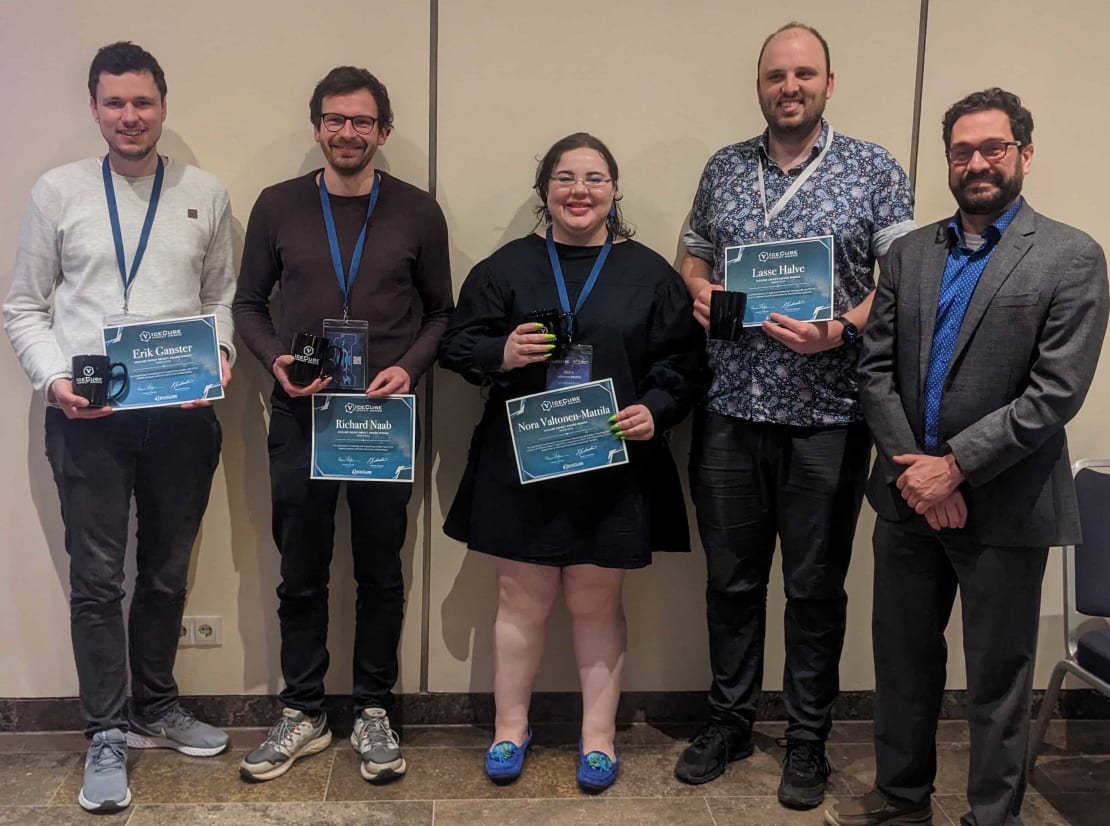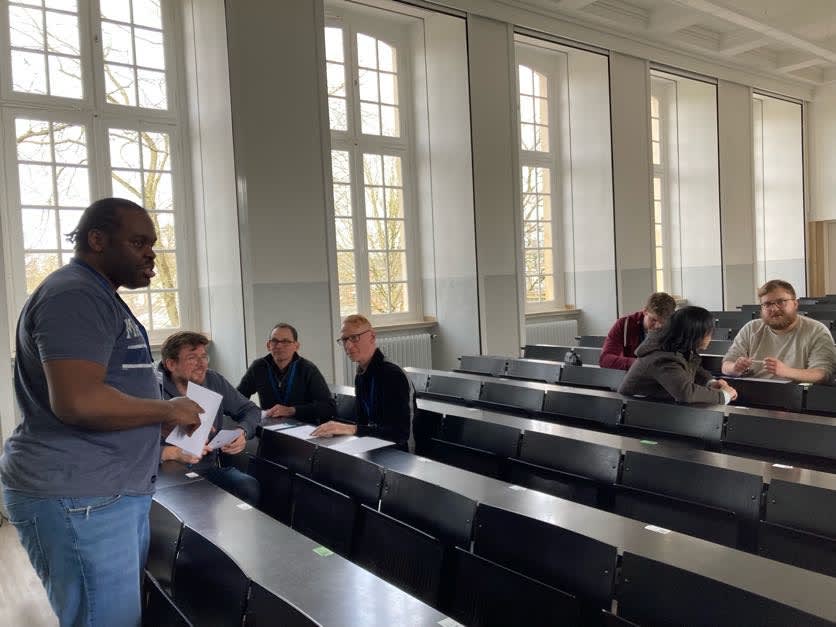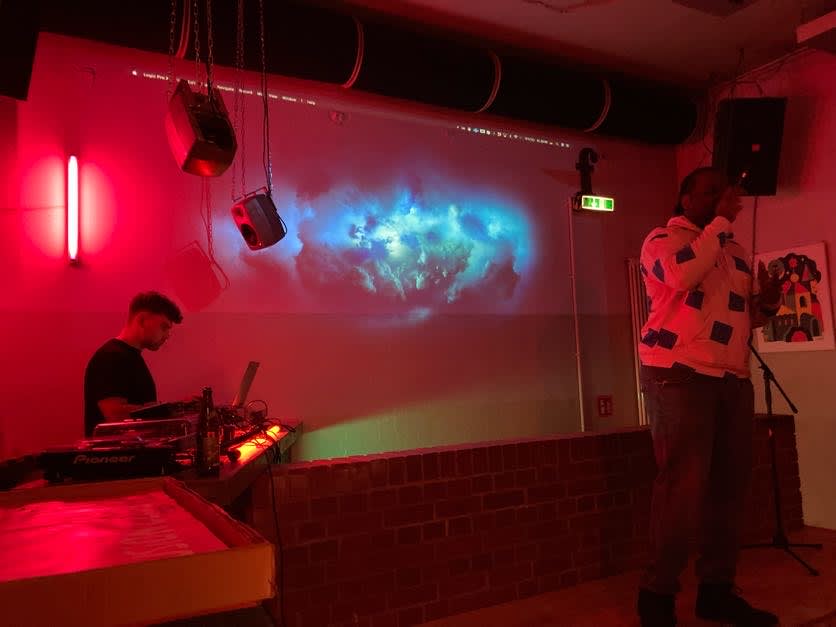
Over 250 participants took part in the spring IceCube Collaboration meeting, which wrapped up last week in Münster, Germany. Hosted by the University of Münster for the first time, the meeting ran from March 17 through March 22.
Before the official start of the collaboration meeting, a number of pre-meetings were held to discuss the latest updates with IceCube-Gen2 and the IceCube Upgrade. Later in the week, there were discussions and talks presenting activities and updates on the IceCube Upgrade, IceCube-Gen2, software, calibration, and education and outreach. The meeting also included presentations on results of the latest IceCube analyses, such as neutrino oscillations, neutrino sources, physics beyond the Standard Model, and cosmic rays.


Later in the week at the collaboration dinner, the results of the eleventh edition of the IceCube Impact Awards were announced. During the ceremony, IceCube spokesperson Ignacio Taboada gave each recipient a certificate and mug to commemorate their achievements, while those who could not attend joined virtually. The awardees are Lasse Halve (RWTH Aachen University); Massimiliano Lincetto (University of Würzburg/DESY); Nora Valtonen-Mattila (Uppsala University); and Erik Ganster (RWTH Aachen University) and Richard Naab (DESY), recipients of the Group Impact Award.
Other special events held during the week include an early career scientist discussion, a women and gender minorities workshop, an LGBTQ+ allies lunch, and a science communication workshop.


The science communication workshop was led by UK-based science rapper Consensus, whose raps are influenced by astronomy and particle physics concepts. At the session, Consensus shared some of the techniques, theories, and case studies he uses to create science-based raps. Workshop participants learned how to write a creative piece that reflected some science topics and watched live demos, including from some of the participants.
Later that evening, Consensus performed tracks from his latest album “Original Conscience,” at a free event at the Fyal Central club in Münster.

IceCubers also had plenty of opportunities to have fun and enjoy the city, including a bouldering session, a board game night, city tours, and a viewing of “Chasing the Ghost Particle” at the LWL Museum of Natural History planetarium.
“The meeting went very well thanks to the fantastic efforts of people from my group,” said Alexander Kappes, a professor at the University of Münster and member of the local organizing committee. “Apart from the banquet and impact awards, another highlight was the screening of the ‘Chasing the Ghost Particle’ movie in full-dome projection at the LWL Museum for Natural History planetarium, which was followed by a very entertaining presentation by Matt Kauer about getting to and living at the South Pole.”
The next collaboration meeting will take place on September 23-27, 2024, in Madison, Wisconsin.